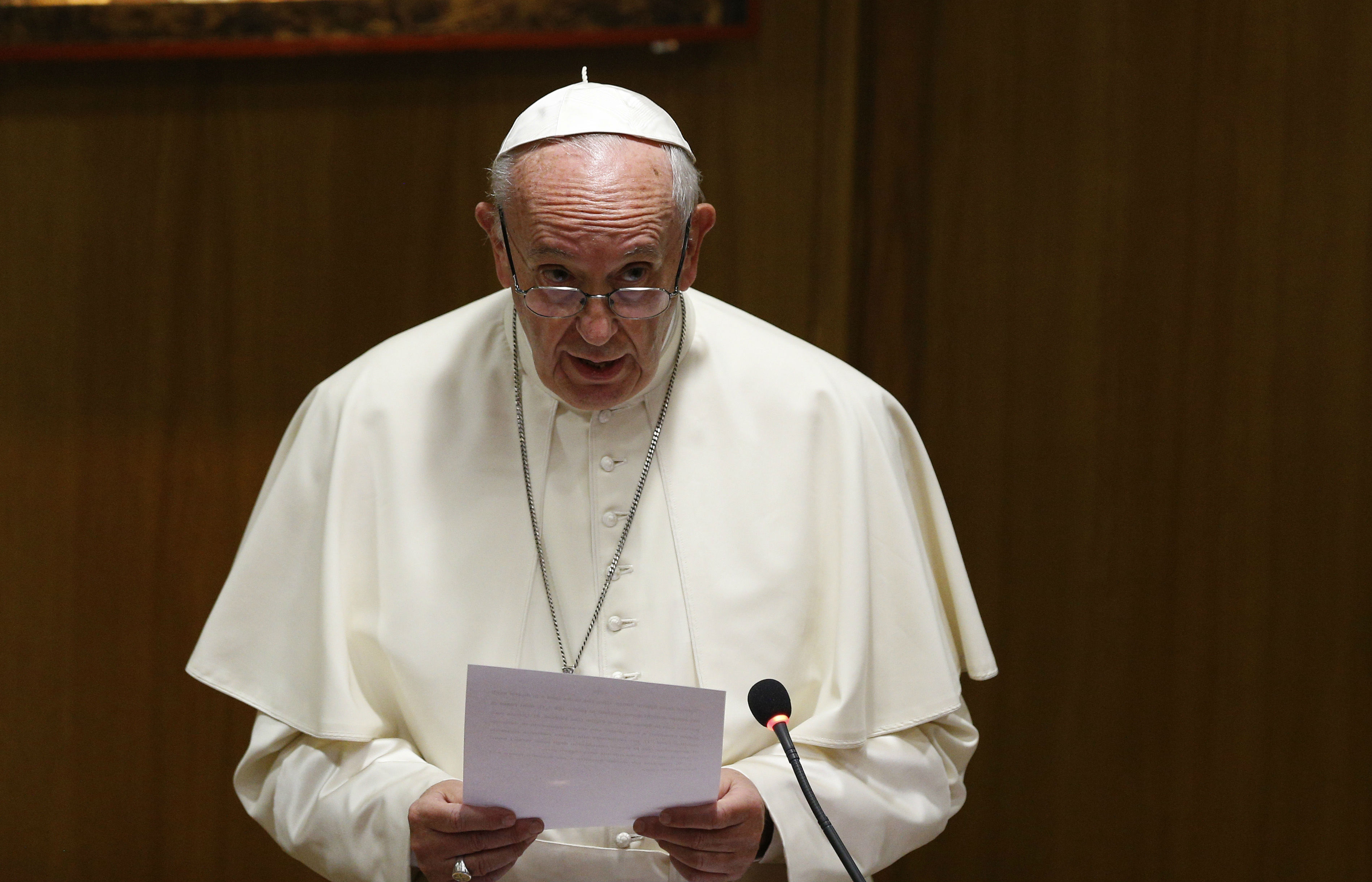Pope Francis has called for a revision of catholic teaching to make the death penalty “inadmissible” citing it as an example of how Church doctrine can develop.
In the past the Church allowed for the death penalty in certain circumstances but throughout his papacy Francis has repeatedly condemned the use of capital punishment.
Now, in a major speech delivered yesterday in the Vatican, the Pope has said he wants this to be included in the catechism, the official summary of Catholic doctrine.
“It is necessary therefore to restate that, however grave the crime that may have been committed, the death penalty is inadmissible because it attacks the inviolability and the dignity of the person,” Francis told a gathering of cardinals, bishops, priests and catechists in the Paul VI synod hall, who were in Rome to mark 25 years since John Paul II promulgated the current version of the catechism.
While the 1992 edition still permits limited use of capital punishment, Francis called on the audience yesterday to find “space” for a more “adequate and coherent” way to incorporate a more clear ban of the death penalty.
This, he stressed, is because Christian understanding has developed in this area with Francis stressing that the “deposit of faith” is not something which remains static.
“The Word of God cannot be conserved in mothballs as if it were an old blanket to be preserved from parasites,” the Pope said. “No. The Word of God is a dynamic reality, always alive, that progresses and grows because it tends towards a fulfilment that men cannot stop.”
Francis has come under harsh criticism from conservative groups who accuse him of breaking with Church teaching over his moves to allow remarried divorcees to receive communion. Some of them recently issued the Pope with a correction while one Cardinal, Raymond Burke, is threatening to issue his own correctional edit. They stress that Church doctrine is handed on, unchanged, across papacies and in the case of marriage and divorce cannot be altered.
But the Pope yesterday stressed that tradition is a “living reality”, and said the Church’s position on the death penalty had shifted through previous papacies but also, crucially, through a new awareness among Christians that the death penalty undermines human dignity.
In Catholic understanding it is the ordinary believers who possess the “sensus fidei” - a sense of faith - which is traditionally taken to mean they both safeguard teaching and how it can develop.
This notion was emphasised by the Second Vatican Council, the 1962-65 gathering which set a blueprint for the Church in the contemporary era, and Francis’ speech yesterday took place 55 years after it opened.
The Pope said that his predecessor John XXIII had called the council not for the church to “condemn errors” but to find a “new language” to present the truths of the Gospel.
But Francis stressed that it is not enough to simply find a new language, and instead the Church should find ways to “express the novelties of the Gospel of Christ.”
According to the Pope the transmission of the truth by the Church “does not mean a change in doctrine at all” instead it requires for it to be put into a new context.
“One cannot conserve the doctrine without making it progress, nor can one bind it to a rigid and immutable reading without humiliating the Holy Spirit,” he said.



 Loading ...
Loading ...